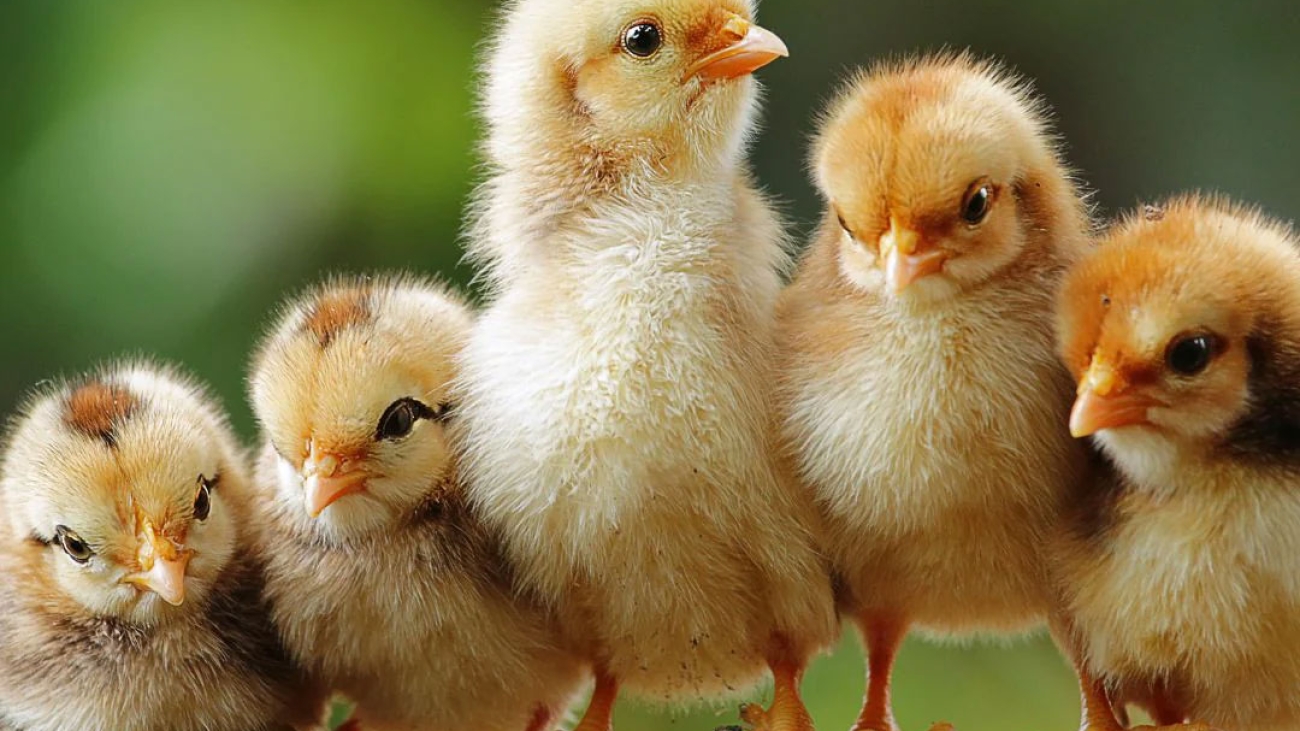Poultry farming is a rewarding venture that offers substantial economic benefits. At our poultry hatchery, we provide 1-day old pre-vaccinated chicks to our customers, ensuring they start with healthy, disease-resistant birds. Recognizing the challenges faced by beginners and those hesitant to handle young chicks, we are now offering 21-day-old pre-vaccinated chicks. This article explores the drawbacks of one-day-old chicks and the advantages of choosing 21-day-old chicks, providing a comprehensive guide to help you make an informed decision.
Understanding the Differences Between One-Day-Old and 21-Day-Old Chicks
One-Day-Old Chicks: An Overview
One-day-old chicks are newly hatched birds that require immediate and intensive care. They are delicate and highly susceptible to environmental changes and diseases. Here are the primary considerations:
Advantages of One-Day-Old Chicks
- Early Adaptation: Starting with one-day-old chicks allows them to adapt to their new environment from an early age.
- Lower Initial Cost: One-day-old chicks are generally less expensive than older birds.
- Control Over Rearing Practices: Farmers can implement their own rearing practices and feeding regimens from day one.
Drawbacks of One-Day-Old Chicks
- High Mortality Rate: The first few weeks are critical, and young chicks are vulnerable to diseases and environmental stressors.
- Intensive Care Requirements: One-day-old chicks require constant monitoring, temperature control, and frequent feeding.
- Higher Risk of Disease: Despite pre-vaccination, young chicks can still fall ill if not properly managed.
21-Day-Old Chicks: An Overview
21-day-old chicks have passed the critical early stage of their life, making them a more robust and resilient option. These chicks have already received their initial vaccinations and have started developing stronger immune systems.
Advantages of 21-Day-Old Chicks
- Reduced Mortality Rate: Older chicks are less susceptible to early-life diseases and environmental stress.
- Easier Handling: More mature chicks are easier to handle and less prone to stress during transportation and handling.
- Established Feeding Habits: By 21 days, chicks have developed consistent feeding habits, reducing the risk of feeding-related issues.
- Less Intensive Care: Older chicks require less intensive care, making them suitable for beginners or those with limited time for poultry management.
Potential Drawbacks of 21-Day-Old Chicks
- Higher Initial Cost: 21-day-old chicks are typically more expensive due to the additional care and feeding provided by the hatchery.
- Delayed Adaptation: These chicks may take slightly longer to adjust to a new environment compared to one-day-old chicks.
Detailed Comparison of One-Day-Old and 21-Day-Old Chicks

Mortality and Health Management
One-Day-Old Chicks:
- Vulnerability: One-day-old chicks are highly susceptible to temperature fluctuations, poor ventilation, and improper feeding.
- Health Risks: Despite vaccinations, young chicks can suffer from diseases like coccidiosis and respiratory infections if not managed properly.
- Mortality Rates: The mortality rate is generally higher during the first few weeks of life.
21-Day-Old Chicks:
- Increased Resilience: Older chicks have a stronger immune system and are less likely to succumb to early-life diseases.
- Reduced Health Risks: With established health and vaccination protocols, 21-day-old chicks are less prone to infections.
- Lower Mortality Rates: The critical early period has passed, significantly reducing the risk of mortality.

Care and Management Requirements
One-Day-Old Chicks:
- Temperature Control: Require a consistently warm environment (brooder) with specific temperature settings.
- Feeding Frequency: Need to be fed multiple times a day with starter feed.
- Close Monitoring: Continuous observation to ensure they are healthy and active.
21-Day-Old Chicks:
- Stable Environment: Less stringent temperature requirements, as they can better regulate their body temperature.
- Established Feeding Routine: Typically fed twice a day with grower feed, reducing the labor intensity.
- Easier Monitoring: Less frequent checks are needed, making management easier for beginners.
Financial Considerations
One-Day-Old Chicks:
- Lower Initial Purchase Cost: One-day-old chicks are generally cheaper to buy.
- Higher Initial Setup Costs: Requires investment in brooders, heat lamps, and other equipment to create a suitable environment.
- Potential Health Costs: Higher risk of disease may lead to increased veterinary expenses.
21-Day-Old Chicks:
- Higher Initial Purchase Cost: More expensive due to the additional care provided by the hatchery.
- Lower Setup Costs: Reduced need for specialized equipment as they can thrive in standard poultry housing.
- Lower Health Costs: Reduced risk of disease and mortality can lead to lower long-term veterinary expenses.

Why Choose 21-Day-Old Chicks?
For beginners or those who prefer a more straightforward start to poultry farming, 21-day-old chicks present several compelling advantages:
Ease of Management
- Simplified Care Routine: Less frequent feeding and lower maintenance compared to one-day-old chicks.
- Reduced Stress: Easier handling and lower stress levels make it simpler to manage the flock.
Improved Health Outcomes
- Stronger Immunity: Older chicks have a more developed immune system, reducing the likelihood of disease.
- Established Vaccination Protocol: All critical vaccinations are administered, ensuring better health management.
Financial Efficiency
- Lower Risk Investment: Reduced mortality rates and health risks lead to better financial returns.
- Less Equipment Required: Lower initial setup costs as there’s less need for specialized brooding equipment.
Suitable for Beginners
- User-Friendly: Ideal for those new to poultry farming, providing a less intimidating and more manageable starting point.
- Support and Guidance: Our hatchery offers ongoing support and guidance to ensure the success of your poultry venture.

Key Considerations for Purchasing 21-Day-Old Chicks
When opting for 21-day-old chicks, it’s essential to consider several factors to maximize the benefits:
Source from Reputable Hatcheries
- Quality Assurance: Ensure the hatchery has a good reputation for providing healthy, pre-vaccinated chicks.
- Health Guarantees: Look for health guarantees or certifications indicating the chicks have been properly vaccinated and cared for.
Proper Transportation
- Minimize Stress: Ensure chicks are transported in a way that minimizes stress and potential injury.
- Temperature Control: Maintain appropriate temperatures during transportation to prevent health issues.
Adequate Housing
- Spacious Accommodation: Provide enough space for the chicks to move around freely, promoting healthy growth.
- Clean Environment: Maintain cleanliness to prevent disease and promote overall well-being.
Nutrition and Feeding
- High-Quality Feed: Provide high-quality grower feed to support the continued growth and development of the chicks.
- Fresh Water: Ensure a constant supply of clean, fresh water.
Regular Health Monitoring
- Routine Checks: Regularly observe the chicks for any signs of illness or distress.
- Veterinary Support: Have access to a veterinarian for routine health checks and any emergencies.
Conclusion
Choosing between one-day-old and 21-day-old pre-vaccinated chicks is a critical decision for any poultry farmer. While one-day-old chicks offer the benefit of early adaptation and lower initial costs, they come with significant challenges, including higher mortality rates and intensive care requirements. On the other hand, 21-day-old chicks provide a more resilient, easier-to-manage option, particularly suitable for beginners and those looking to reduce the risk and workload associated with poultry farming.
At our hatchery, we are committed to providing high-quality, pre-vaccinated chicks to help you achieve success in your poultry venture. By opting for 21-day-old chicks, you can enjoy the peace of mind that comes with knowing your birds have already passed the most vulnerable stage of their lives and are ready to thrive in your care.
For more information on our 21-day-old chick offerings and to make a purchase, please visit our Farm or contact our customer support team Phone number. +91 8374373697. We are here to support you every step of the way in your poultry farming journey.




Add a Comment